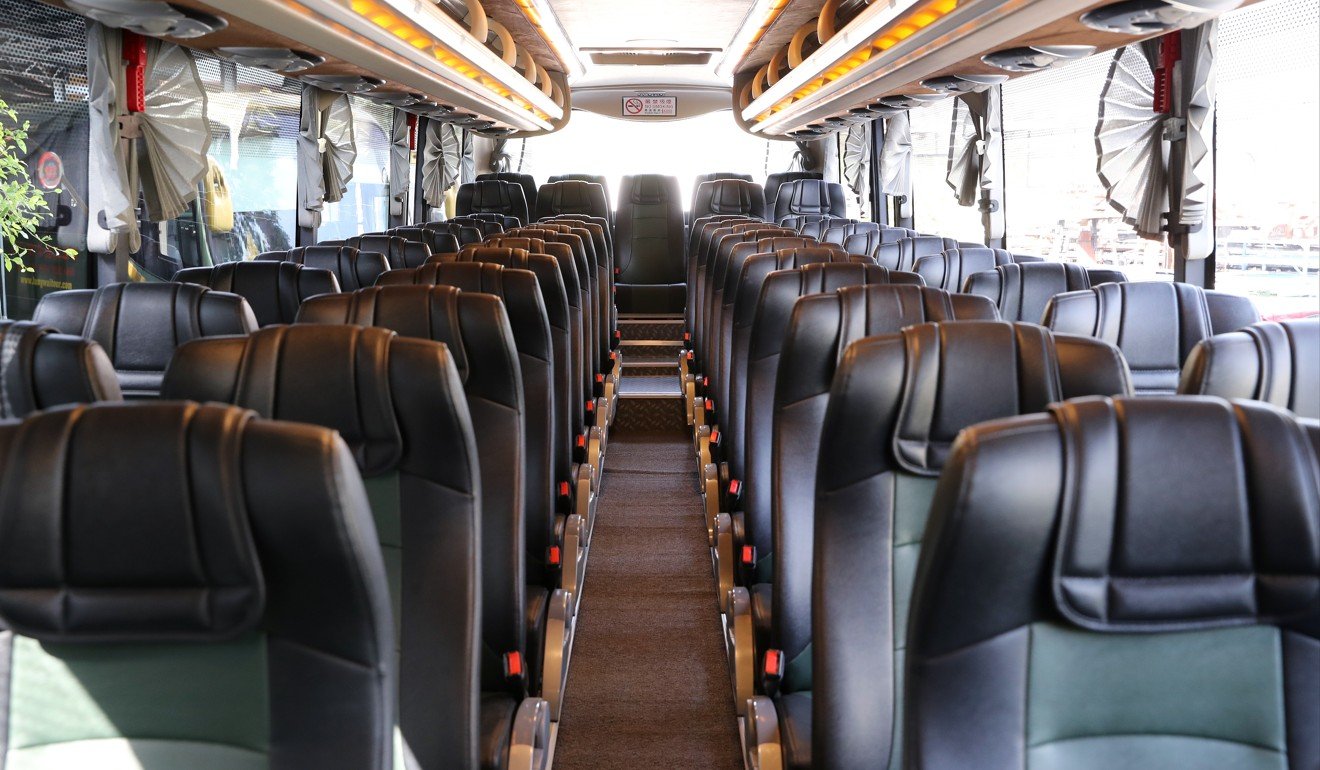
Hong Kong investors stake HK$170 million as they roll the dice on coach trips to Macau using new bridge
One Bus and Kwoon Chung among companies licensed to run daily services between the two cities. But limits on services and competition from shuttle buses could dent profits
Hong Kong investors are splashing some HK$170 million (US$22 million) on new fleets of coaches to ply the Hong Kong-Zhuhai-Macau bridge, in what could be a gamble aimed at winning a bigger slice of the market for travel to the casino city.
But Macau’s strict limits on cross-border services – one round trip between Hong Kong and the city per day per coach, capped at a daily service of 50 coaches – could prove an obstacle.
Despite the risks, coach operator One Bus Hongkong Macau, formed by nine investors running a fleet of 19 Hong Kong-Macau coaches, has high hopes that the multibillion-dollar bridge will open up new opportunities for them to reach out to the gaming hub.
They have spent at least HK$95 million on a luxury coach fleet, including HK$1.6 million to HK$2 million for each bus and a licence fee of more than HK$3 million per vehicle. The nine investors include Eternal East Cross-Border Coach, and two subsidiaries of KMB.
“We used the best materials and a sharp and dapper design for One Bus coaches, and we invested a lot of money in the fleet because we want to build a strong brand image for our company and offer a luxury experience for our customers,” investor Au Shui-hing, deputy chairman of the Hong Kong Macau Cross Border Association, said.
Equipped with five security cameras and a Volvo Euro 6 chassis with lower emissions and higher efficiency, each 53-seater coach will provide free Wi-fi and smartphone charging facilities.
One Bus investors beat other bidders in a lucky draw, winning 19 permits of 34 issued by the Hong Kong government to run the Hong Kong-Macau coach services.
The other 15 locally issued coach permits – all of which last six years and apply to a specified vehicle – went to another group of investors including transport firm Kwoon Chung Bus.
Based on a cost of at least HK$5 million for each coach, the total investment from Hong Kong is estimated to be more than HK$170 million.
The Macau government issued 16 permits to the city’s coach companies, meaning there will be 50 coaches per day running services between the two cities.
At the moment, people travelling directly between Hong Kong and Macau rely on ferries.
In 2016, the total passenger count between Hong Kong and Macau amounted to some 20.6 million. And the bridge, set to operate around-the-clock, is expected to create a road transport market to Macau after construction is completed.
The 55km bridge, connecting Lantau Island, Macau and the mainland Chinese city of Zhuhai, is widely expected to open on July 1 this year, the 21st anniversary of Hong Kong’s return from British rule to Chinese. The Hong Kong government has forked out nearly HK$120 billion for the local section of the bridge.
Another One Bus investor, Chan Man-keung, chairman of the Association of Taxi Industry Development, said the coach fare had been tentatively set at HK$160 to HK$180 per passenger, with the journey starting from the Kwun Tong terminal, stopping at Wong Tai Sin and Kwai Fong, and ending at some casinos in Macau.
Chan said he hoped Macau authorities would ease restrictions on cross-boundary coach services, to allow more frequent services.
“We really think there is a market for Hong Kong-Macau coach services, as many passengers don’t like travelling by ferry due to seasickness. With only 19 coaches, we can carve out only a tiny percentage of market share, actually less than 1 per cent,” he said.

“The Macau government stipulates that one coach can provide only one round trip per day, but actually a coach could run for five or six round trips daily. We hope the Macau government will relax this restriction, otherwise we will be running big losses.”
Kwoon Chung Bus chief executive James Wong Cheuk-on said he was not too worried about the service restrictions as his firm, which has invested in two Hong Kong-Macau coaches, plans to flexibly operate the coaches.
“Since Kwoon Chung Bus also runs local coach services, our cross-border coaches could be switched into providing local services once they finish their daily round trips between Hong Kong and Macau,” he said.
The cross-border coaches also face stiff competition from shuttle buses. The selected operator will be allowed to provide 90 to 140 buses daily between the border checkpoints of the three cities. The shuttle buses will run every five minutes at peak hours and every 10 to 15 minutes during non-peak hours.

